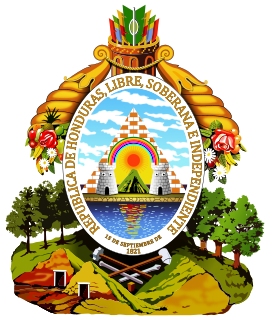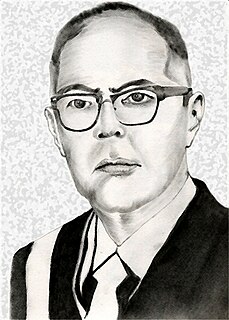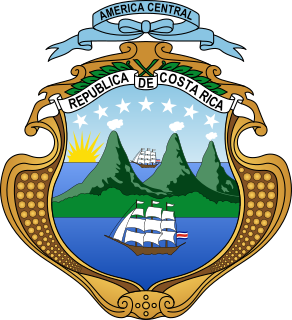
General elections were held in Honduras to elect a president and parliament on 30 November 1997. They were also the first elections in which the left wing Democratic Unification Party was allowed to stand.

General elections were held in Honduras on November 29, 1981. Each voter had a single vote to cast for a presidential candidate, with seats in the National Congress divided based on the share of the vote their presidential candidate had won. The result was a victory for Roberto Suazo Cordova and the Liberal Party. Voter turnout was 78.5%.
A general election was held in Honduras on November 24, 1985. Voters went to the polls to elect a new President of the Republic and a new Congress.
A general election was held in Honduras on 26 November 1989. Voters went to the polls to elect a new President of the Republic and a new Congress.
A general election was held in Honduras on 27 November 1993. Voters went to the polls to elect a new President of the Republic and a new Congress.
A legislative election was held in Honduras on 20 April 1980. The people elected 71 deputies to the Constituent Assembly.
A presidential election was held in Honduras on 25 July 1980.

A general election was held in Honduras on March 28, 1971. Voters went to the polls to elect a new President of the Republic and a new Congress.
A legislative election was held in Honduras on 16 February 1965. The people elected 64 deputies to the Constituent Assembly.
A legislative election was held in Honduras on 7 October 1956. The people elected 58 deputies to the Constituent Assembly.
A general election was held in Honduras on 10 October 1954. The elections took place, with relative honesty.
A general election was held in Honduras on 10 October 1948. Voters went to the polls to elect a new President of the Republic and a new Congress.
A general election was held in Honduras on 28 October 1932. Voters went to the polls to elect a new President of the Republic and a new Congress.
A general election was held in Honduras on 28 October 1928. Voters went to the polls to elect a new President of the Republic and a new Congress.
A general election was held in Honduras on 28–30 December 1924. Voters went to the polls to elect a new President of the Republic and a new Congress.

General elections were held in Honduras between 26 and 28 October 1919. Rafael López Gutiérrez of the Liberal Party won the presidential election with 81% of the vote.

General elections were held in Honduras between 27 and 29 October 1923. Tiburcio Carías Andino won the presidential election with 47.1% of the vote. However, as no candidate had received an absolute majority in the public vote, Congress would vote on the candidates. However, Congress did not meet again until 1 January the following year. In December President Rafael López Gutiérrez declared a state of siege, suspended the constitution, and announced that he would remain in office in order to keep the peace. Although Congress was dominated by the two liberal parties, they did not want Carías, but also could not agree on a common candidate.

General elections were held in Honduras in October 1916. Francisco Bertrand of the Nationalist Party was the only candidate in the presidential election, and was elected unopposed. As the incumbent, Bertrand had been constitutionally barred from contesting the elections, but had avoided the rule by resigning in favour of his vice president three months before the election.

General elections were held in Costa Rica on 1 April 1917. Federico Tinoco Granados had seized power in a military coup in January and was the only candidate in the presidential election. The elections were considered to be fraudulent and although former president Rafael Yglesias Castro received 249 votes in Alajuela, they were recorded as invalid ballots. Voter turnout was reported to be 69.2% in the presidential election and 67.6% in the parliamentary election.
Events in the year 1902 in Belgium.







